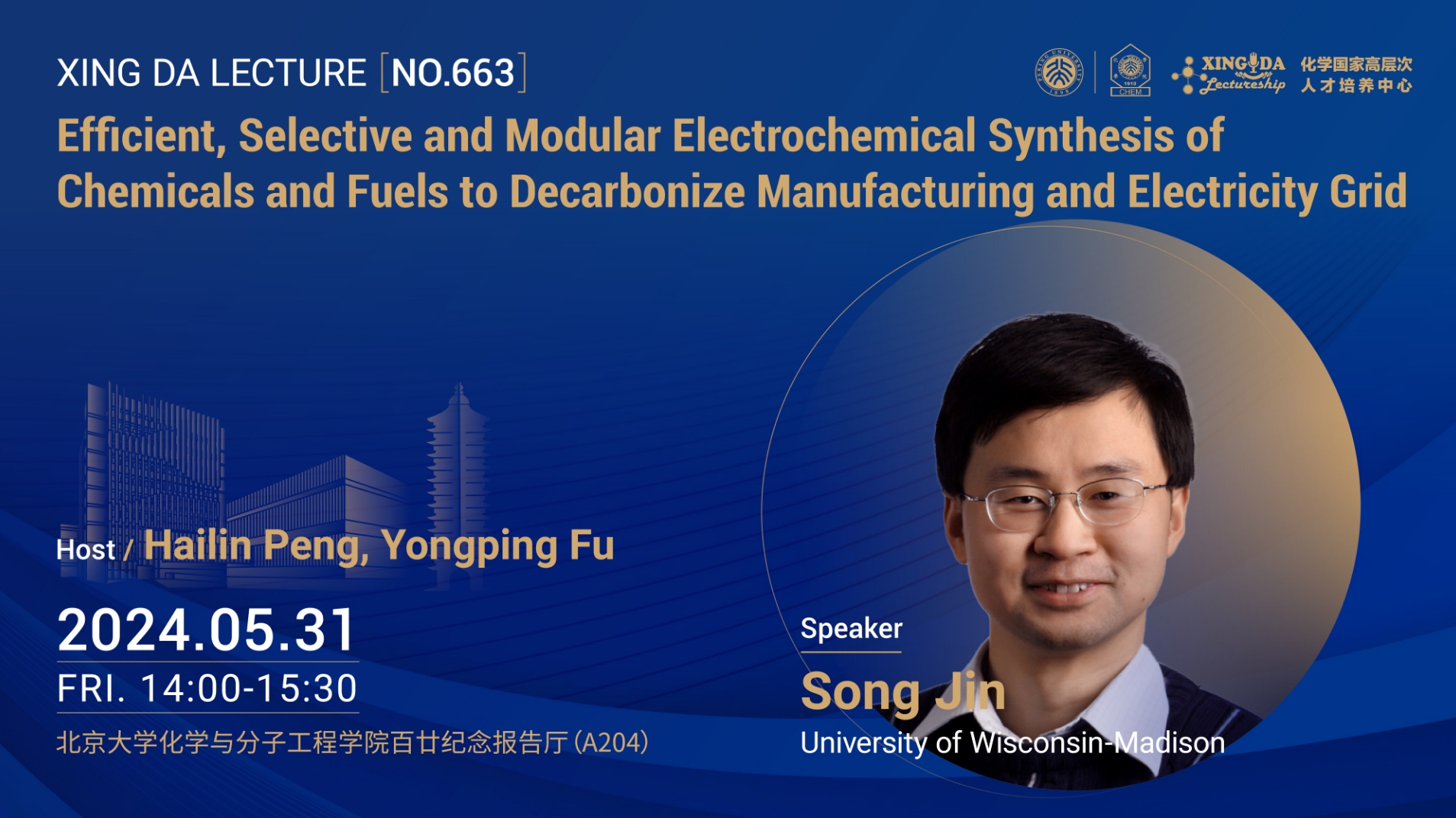
报告摘要
Large scale utilization of intermittent renewable energy sources demands efficient energy conversion, large scale energy storage, and new electrochemical technologies. I will first discuss our recent progress in designing new electrocatalysts and controlling their phase and defects for efficient hydrogen evolution reaction and oxygen evolution for water splitting, and selective two-electron oxygen reduction reaction (2e- ORR) to produce hydrogen peroxide (H2O2). Furthermore, because the tight coupling between paired electrochemical half-reactions requires identical reaction conditions, we recently developed modular electrochemical synthesis (ModES) using redox reservoirs, which are solid energy-storage materials that can store electrons and desired ions, to improve energy efficiency and reduce waste by pairing independent half-reactions. Such ModES strategies can provide demand flexibility by participating in dynamic electricity markets at different timescales and significantly reduce electricity cost of chemical manufacturing. Furthermore, electrochemical recovery of ammonium (and other nutrient) ions from manure wastewater could be integrated with electrosynthesis using ion-selective redox reservoir materials. These new strategies for flexibly integrating electrochemical manufacturing processes with fluctuating power grid achieve more economical and sustainable operations to decarbonize manufacturing and electricity grid.
报告人简介
Prof. Song Jin received his B.S. in Chemistry from Peking University in 1997, Ph.D. in 2002 from Cornell University under the direction of Prof. Francis J. DiSalvo and carried out his postdoctoral research under the direction of Prof. Charles M. Lieber at Harvard University. Dr. Jin is interested in the chemistry, physics and technological applications of nanoscale and solid-state materials. Dr. Jin developed innovative synthesis of a variety of nanomaterials including metal chalcogenides, silicides, and halide perovskites, and discovered and developed the screw dislocation-driven growth of nanomaterials. Building on the fundamental understanding of novel physical properties, Jin advances the exploitation of (nano)materials for electrocatalysis, solar energy conversion, energy storage, optoelectronics, nanospintronics, and biotechnology. Dr. Jin has authored or co-authored over 270 publications and 13 patents. He has been recognized with a NSF CAREER Award, a Research Corporation Cottrell Scholar Award and as one of world’s top 35 innovators under the age of 35 (TR35 Award) by the MIT Technology Review Magazine, the ACS ExxonMobil Solid State Chemistry Fellowship, the Alfred P. Sloan Research Fellowship, and the ACS Inorganic Nanoscience Award. He received Vilas Associate Award, H. I. Romnes Faculty Fellowship and WARF Named Professorship at the U. of Wisconsin-Madison. Since 2018, he has been continuously identified by Web of Science as a Highly Cited Researcher. He also serves as a Senior Editor for ACS Energy Letters.